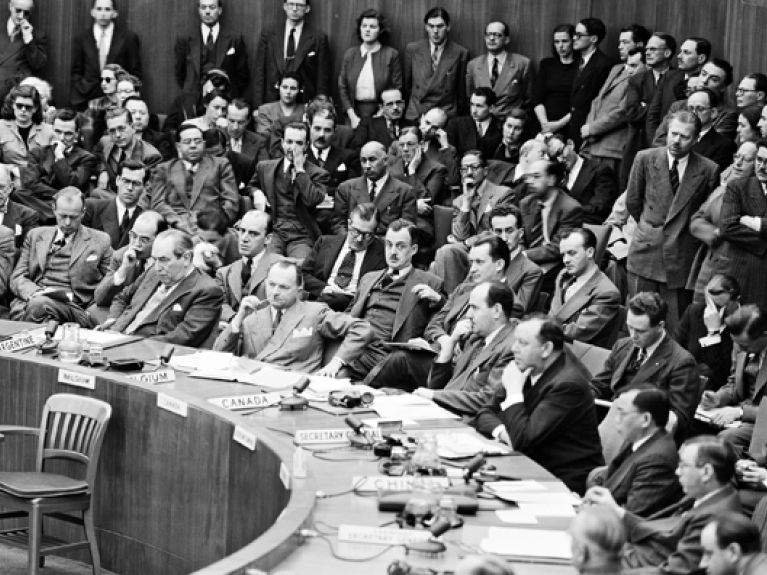70th Anniversary of the United Nations Charter
The UN Charter is just as valid now as it was when the United Nations organization was founded.

The Charter of the United Nations is the foundational treaty of the United Nations (UN). As a result of two devastating world wars in the 20th century, the member states signed the charter on 26 June 1945 in order to create a new community of states dedicated to preventing future wars and promoting close cooperation between the governments throughout the world. The Charter came into effect on 24 October 1945, after it had been ratified by the then five permanent members of the UN Security Council (China, France, Britain, the Soviet Union and the USA) and the majority of the other signatory states.
Maintaining world peace
As an international treaty, the UN Charter obliges all members to uphold its principles. It describes the aims and tasks of the United Nations, and names its organs, their functions and powers. Among other things, the central aims of the charter include maintaining world peace and security, ensuring that armed force is not used, respecting the national sovereignty of states and safeguarding human rights.
“When you read this charter after 70 years, it is just as valid now as it was when the United Nations organization was founded,” said the former diplomat and longstanding permanent representative of Germany to the United Nations in New York, Gunter Pleuger, in praise of the charter on its 70th anniversary.

